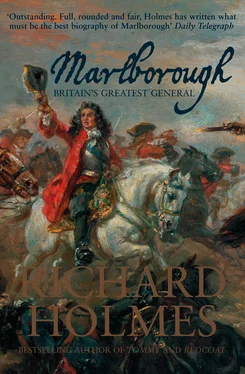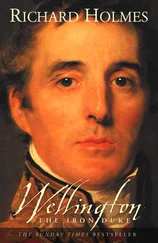Sir Roger ‘fought a Duel upon his first coming to town’, and there too he was in good company. While Richard Brinsley Sheridan was later to write of ‘sharps and snaps’, in our period the flintlock pistol (‘snap’) had not yet come of age as a duelling weapon, although Major General William Stewart and Captain Thomas Bellew agreed to use pistols when they met in 1700 because both had wounded right hands. Gentlemen usually went at one another with their small swords, either in the relatively formal circumstance of a duel, or the wholly casual surroundings of coffee house, club or street.
Affairs of honour swept up all those who thought, however flimsy the grounds, that they might have honour to defend. Peter Drake rubbed along at the very bottom end of gentility, and when he kept the Queen’s Arms tavern near St Clement Danes he ‘provided bob-wigs, blue aprons, etc, proper for the business of a vintner; these I wore at home, but could not yet leave off the tie-wig and sword when I went abroad’. 35 He duelled whenever the mood took him. Scarcely had he reached Holland, with the first of his many regiments, in 1689, than he had cross words with ‘one Butler, who was a quartermaster in a regiment of Dutch horse … I ran him in the sword arm, and he ran me through the left breast, and so we parted, to take care of ourselves.’ 36
Nearer the top end of the social scale, the most celebrated duel of the age saw the Whig Lord Mohun, a reformed rake who had already twice been tried by his peers for murder, and the Tory grandee the Duke of Hamilton (who had sired an illegitimate child on Marlborough’s own bastard daughter), just appointed ambassador to Versailles, meet in Hyde Park early on the morning of 12 November 1712. Mohun and Hamilton rushed at one another ‘like wild beasts, not fencing or parrying’. Mohun, run through the chest, was killed on the spot, but he lashed out as he fell and the tip of his small sword opened a vein in Hamilton’s arm, leaving him bleeding to death. Their seconds, Major General Macartney (recently dismissed the service for toasting damnation to the new Tory ministry) for Mohun, and Colonel John Hamilton for the duke, had not let time hang heavy on their hands, and were at it too: Hamilton was pinked in the lower leg. Hamilton later claimed that he was holding his wounded principal when Mohun ran up and stabbed the prostrate man, and although the evidence was uncorroborated, Macartney wisely fled abroad. He reappeared after the accession of George I, stood his trial at the King’s Bench, and was acquitted.
Officers, with their keen sense of honour and arms conveniently to hand, were always ready to lug out, though the British army never reached the quarrelsome pinnacle of its French opponents. De la Colonie fought his first duel when still a cadet, but his opponent, a lieutenant and assistant adjutant of the Régiment de Navarre, summoned help by yelling ‘ À moi, Navarre ,’ and thus unsportingly turning private squabble into public riot. Peter Drake, then serving in a French regiment, was with ‘thirteen friends and bottle companions’ when a dispute arose between two of them. They decided on a mass duel, and as they were walking to a suitable ground Lieutenant de la Salle, observing that the numbers were uneven, cheerfully joined the smaller group. For a moment there was a chance of reconciliation, but de la Salle observed that the wine was drawn and they must drink it.
The fight began, every man tilting at his opponent, and the two principals engaged; and in a short time killed each other. There was another lost on the part for which I fought, and some wounded on both sides; and I had the good fortune to wound and disarm Monsieur de la Salle. 37
British officers, though, were no slouches. In 1692, when Lord Berkeley’s regiment of dragoons was quartered in Louvain a convivial evening at Captain Edward Mortimer’s lodgings was interrupted by the drunken arrival of Captain Thomas Lloyd, who had recently left the regiment in disgrace. As the officers walked out across the marketplace, Lloyd blamed Major Giles Spencer for his misfortunes: both men drew, and Lloyd was wounded in the thigh, dying soon afterwards. Spencer was court-martialled, and acquitted on the grounds of self-defence. Two years later, despite the fact that the Allied army was marching flat-out to stop the French from crossing the Scheldt near Oudenarde, Sandy Dundas found time to kill Cornet Conway of Lord Polwarth’s Regiment.
In 1699 the foppish young Conway Seymour met Captain George Kirke of the Royal Horse Guards in Hyde Park, and high words were exchanged. Seymour was stabbed in the neck, and seemed likely to recover when he embarked on a debauch which made him vomit, reopening the wound and causing an infection which killed him. Kirke was convicted of manslaughter and ‘burned in the hand’, branded with a hot iron, a punishment made rather less damaging if one could afford to pay to have the iron dipped in cold water first. He was temporarily suspended from his commission, but went on to be promoted. 38 In 1711 the Duke of Argyll, a member of the anti-Marlborough faction, heard from ‘a penny post letter sent him from an unknown hand’ that Colonel Court of the foot guards had refused to drink his health, saying, ‘Damn him he would not drink the health of a man that changed sides.’ When the matter was put to the good colonel he confessed that he had been in drink at the time and had no idea at all what he might have said, but would not deny His Grace satisfaction: ‘They fought in Hyde Park, and the Duke disarmed him, and there’s an end of the business.’
In 1708 it was said by Ensign Hugh Shaw that the Master of Sinclair, captain-lieutenant in Colonel Preston’s Regiment, ‘had bowed himself towards the ground for a considerable time altogether’ in the hard-fought little battle of Wynendaele. Captain Alexander Shaw, the ensign’s older brother, took his sibling’s side, but Sinclair killed them both, allegedly by hitting Alexander over the head with a concealed stick before wounding him mortally, and then going on to pistol young Hugh ‘before he had time to put himself in a posture of defence’. 39 The case caused serious difficulties, for Sir John Shaw, brother of the two dead men, petitioned the queen, demanding the death penalty, while John Sinclair, eldest son of a Scots peer, was not without clout of his own. The solution was typical of the age. Sinclair was convicted by court-martial on one count of murder, but miraculously escaped from custody. On 26 May 1709 Marlborough wrote to Lord Raby, then ambassador to Berlin.
This will be delivered to Y[our].E[xcellency]. by the Master of St Clair … who having had the misfortune to kill two brothers of Sir John Shaw the last campaign in Flanders, for one of which being tried and condemned by a court martial, he has found means to get away, and must now seek employment elsewhere. If Y.E. will please to take him under your protection and recommend him to your court, I shall take it as a particular favour … 40
Influence, that glutinous, omnipresent lubricant that the age called ‘interest’, was never far away, and we cannot hope to understand the period without analysing it. It had a number of components. There was a strong strain of two-way obligation laced with self-interest, with tenants supporting their landlords, officers their colonels, and the heads of families striving to provide for distant relatives. Most contemporaries thought that the process was wholly proper, and the tomb of Elizabeth Bate, widow of the Reverend Richard Bate, who died in 1751 at the age of seventy-four, proudly announced that:
She was honourably descended
And by means of her Alliance to
The illustrious family of Stanhope
Читать дальше












